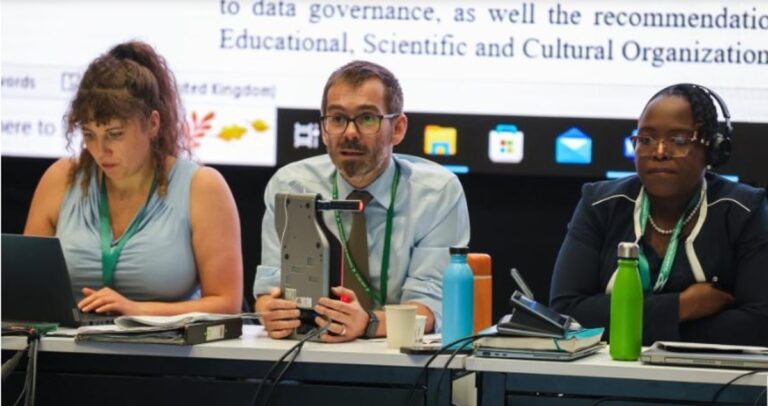There is a reason why the decision to operationalize a multilateral mechanism for benefit-sharing on the use of digital sequence information (DSI) of genetic resources has taken so long. It's all about power and money, and the groups that have these aren't going to let them go.
This topic is being discussed at COP16 of the Convention on Biological Diversity (CBD) in Cali, Colombia. This is part of Target 13 of the Kunming-Montreal Global Biodiversity Framework (KMGBF). The new mechanism would change the existing unregulated system. DSI exists in digital format and can be shared and accessed online. There are open access databases (more than 1,700 databases and repositories worldwide) that store vast amounts of genetic data.
The International Nucleotide Sequence Database Collaboration (INSDC) consists of three large databases and receives over 23 million sequences annually.
These are the European Nucleotide Archives, based in the UK. GenBank is based in the United States and DNA Data Bank of Japan is based in Japan.
These databases store a range of materials that are mostly accessed without following the processes set out under the Nagoya Protocol. The database does not indicate the origin of the material, nor does it contain information about whether the material was obtained under mutually agreed terms with the community that owns the rights to the material.
Without this information, users of sequences from these databases have no compulsion to share the benefits with the communities storing them.
At COP15 in 2022, they acknowledged the need to share interests and directed parties to establish a multilateral mechanism at COP16. However, this is not easy and has been subject to intense user lobbying over the past two years.
This includes the DSI Scientific Network, which represents the scientific community. The network was founded in 2020, and its mission, according to the network's website, is to “inform policymakers and other stakeholders in their understanding of DSI, its applications, research, biodiversity conservation, and its contribution to public health.” The aim is to contribute to the
The network is funded by grants from Global North organizations such as the Alliance of German Scientific Societies, the Norwegian Agency for International Development, CGIAR via CIAT-Bioversity, the National Institutes of Health, the Rockefeller Foundation, and WiLDSI, which was funded by the German government before COP15. has been done. , gives an example of the problem.
According to the COP16 position paper, non-commercial users must contribute only non-financial benefits, and placing sequences in open source databases satisfies this requirement. They want Global Fund funding to be used to build capacity to increase databank data, especially from underrepresented regions of the world. They agree that database practices can be improved, but database administrators cannot become ABS police. They want profit sharing to be separated from access to DSI. This is contrary to the provisions of the Nagoya Protocol.
For commercial users of DSI, the group argues that companies should donate a portion of their commercial profits to the Global Fund. This, they say, will benefit from new and unpredictable uses for DSI, such as future artificial intelligence applications. They say this option could help harmonize DSI benefit-sharing across different UN forums.
Most of these points reflect those of developed countries. For example, Japan and Canada oppose database and academic institutions contributing to DSI funds. The EU opposes the idea that large multinational corporations should contribute to the DSI Fund. JUSCANNZ (Japan, United States of America, Canada, Norway, New Zealand, Australia, Israel, Turkey, Switzerland, South Korea) opposes the tracking system of multilateral mechanisms.
Developed countries' demands are contrary to those of developing countries such as the African Group, GRULAC and India, which want a legally binding multilateral mechanism to distribute benefits to users. African groups also called for a CBD-based sequence database to preserve the sovereign rights of local communities to genetic material and DSI. This database exposes DSI to the public domain, but its use is subject to specific terms and conditions. Other databases can be connected to the CBD sequence database.
This could be a solution, but developed countries such as Norway, South Korea, Japan, Switzerland, and Australia oppose the creation of a centralized database.
Not all researchers are against profit sharing, and they too are making their case at COP16. London-based startup Basecamp Research has built a system to access genetic material from indigenous communities following the PIC and MAT processes. These materials will be arranged and posted in open source databases, but only after all information regarding the location of collection and terms of use of the materials is in place. Information regarding profit sharing is not in the public domain.
The group organized a side event, “How can DSI benefit sharing exist harmoniously under the Nagoya Protocol and new multilateral mechanisms?” They will showcase their achievements at COP16. However, the group receives funding from pharmaceutical companies such as Roche and Unilever. DSI Scientific Network participated as part of a side event on this panel.
Other stakeholders, such as civil society and representatives of indigenous communities, also want to improve data governance. This is consistent with CBD principles.
Lobbying is likely to continue next week, as COP16 parties are making enthusiastic progress on this issue.

